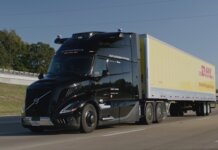The Government of Canada is moving forward with provincial and territorial partners and stakeholders to develop a national strategy to increase the number of zero-emission vehicles (ZEVS) on Canadian roads by 2018, as reported by the Honourable Marc Garneau, Minister of Transport, and the Honourable Navdeep Bains, Minister of Innovation, Science and Economic Development.
Transportation accounts for about 24% of Canada’s emissions, mostly from cars and trucks. ZEVs, which include battery electric, plug-in hybrid, and hydrogen fuel cell vehicles, offer the potential to significantly reduce greenhouse-gas emissions from the light-duty vehicle sector.
The partners pledged to develop this ambitious Canada-wide ZEV strategy under the Pan-Canadian Framework on Clean Growth and Climate Change. As reported, the strategy will build on existing initiatives, such as light-duty vehicle regulations, provincial ZEV programs, and Canadian innovation superclusters, to help meet the 2030 greenhouse-gas emissions reduction target.
To advance the strategy, a national advisory group has been established to contribute to developing options for addressing the key barriers for greater deployment of these technologies in five areas: vehicle supply, cost and benefits of ownership, infrastructure readiness, public awareness, and clean growth and clean jobs. The advisory group includes representatives from governments, industry, consumer and non-government organizations and academia.
The Canadian government has made an important start in supporting further deployment of ZEVs by providing $62.5 million through Budget 2016 and an additional $120 million through Budget 2017 for Natural Resources Canada to deploy infrastructure for electric vehicle charging and refueling stations for alternative fuel, such as natural gas and hydrogen, as well as to support technology demonstration projects.
“We understand Canadians’ concerns about the environment and are developing an aggressive strategy to tackle climate change by taking actions to reduce greenhouse gases and air pollution,” says Garneau. “By putting more zero-emission vehicles on the road, we are investing in the future of cleaner transportation for all Canadians.”
Bains says, “We have an opportunity to have a major impact on the development of clean energy and clean transportation. Canada is home to countless innovative firms and talent that are already shaping the automotive technologies of the future. This strategy provides an important opportunity to create highly skilled middle-class jobs, reduce carbon emissions and create healthier communities.”
“This is a time of laying the groundwork for the 21st century society we want,” adds Catherine McKenna, Minister of Environment and Climate Change. “New measures to improve efficiency across the transportation sector, as well as to encourage zero-emission vehicles, will complement carbon pricing and take advantage of a low-carbon electricity grid.”






